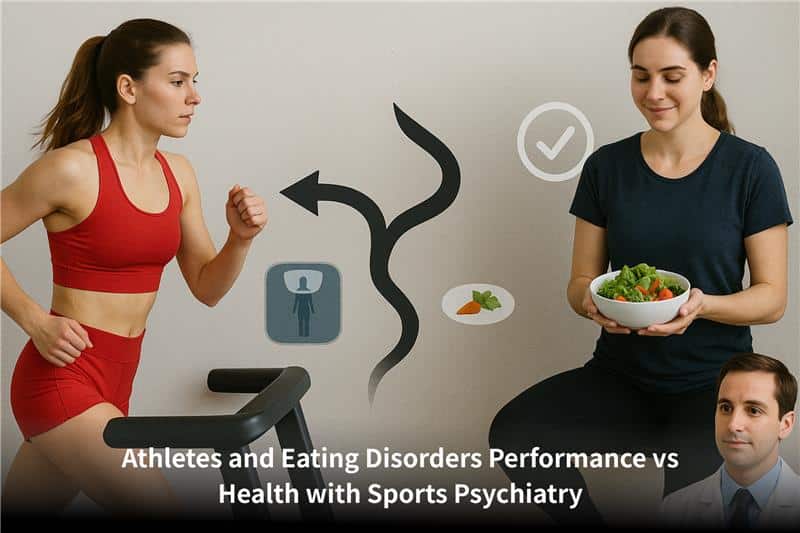Living with impulse control disorder treatment often means learning how to manage urges and behaviors that disrupt daily life. It’s a complicated path that takes patience, awareness, and the right tools to support your mental well-being
What is Impulse-Control & Conduct Disorders
It affects how people manage strong urges or actions. They often lead to behavior that can hurt others or themselves. Impulse-Control & Conduct Disorders treatment can address disturbing behaviors like setting fires, stealing, or aggressive outbursts.
Each person experiences these disorders differently. Some struggle with the urge to steal, while others deal with intermittent explosive disorder. These behaviors are not just bad habits. They are signs of deeper mental health disorders that need real, ongoing psychiatric care.
Knowing that you’re not alone and that your brain is wired in a way that needs support can be a game-changer. Psychiatric treatment plays a key role in building structure and stability. With the right help, managing daily life becomes not only possible but fulfilling.
Spotting Impulse Control Disorder Symptoms Early
Learning to notice impulse control disorder symptoms is a powerful first step. Symptoms often include sudden anger, urges to start fires, lie, break rules, or act in risky sexual behavior. These are not just poor choices. They’re part of a larger, complex mental health condition.
Some people with these symptoms may also live with other challenges like anxiety disorders, substance use disorder, or personality disorders. This makes treatment even more important. Getting the right diagnosis can help you understand your brain better and stop blaming yourself.
You’re not weak. You’re human. And with psychiatric treatment, you can start building new habits that support your growth.
Creating a Daily Routine That Supports Healing
Daily structure helps reduce impulsive behaviors. A steady routine gives your mind fewer chances to spiral. Wake up and go to sleep at the same time. Take short walks. Eat healthy food regularly. These may sound small, but they support your brain chemistry.
Use alarms or reminders for tasks. Schedule breaks. Make time to pause before acting on a strong feeling. These actions support your treatment plan and allow your mind space to respond instead of react.
Daily journaling is another helpful tool. Write down your triggers and responses. Notice patterns. These notes become powerful when shared with your psychiatrist, helping fine-tune your treatment plan.
Looking to create a personalized toolkit for your mental well-being? Check out our guide on building a personal mental health resource toolkit for everyday use.
Managing Disruptive Impulse-Control and Conduct Disorders Treatment with Mindfulness
Disruptive impulse-control and conduct disorders treatment includes both medication and behavioral strategies guided by psychiatry. While medication helps balance brain chemicals, mindfulness teaches you how to pause.
Start small. Take five deep breaths when you feel overwhelmed. Place your hand on your chest and name what you’re feeling. You’re not trying to stop the feeling. You’re learning how to ride the wave without falling.
Mindfulness also teaches boundaries. Say no when you feel pushed. Step away when you need space. These small acts help you build a safer world around you and inside you.
Simple Tools to Manage the Urge to React Fast
Impulse control means slowing down a fast brain. Use grounding tools when you feel the urge to act on impulse. Hold an ice cube. Smell something calming. Drink a glass of water slowly. These tools distract your brain just long enough to reset.
Keep a small kit with fidget toys, calming scents, or notes to yourself. When things get intense, open the kit. It becomes a signal to your brain that it’s time to pause and use your tools. Your body often knows what your brain doesn’t say. Learn to listen. Feeling tightness or tension? It may be your body telling you that your brain needs support right now.
Exploring Effective Treatment Impulse-Control Disorders with Psychiatric Care
Effective treatment impulse-control disorders through psychiatry is not one-size-fits-all. Treatment often includes medications that target parts of the brain linked to behavior control.
Psychiatrists help track side effects and adjust medications when needed. They also support you in learning daily habits and coping strategies. Working with a psychiatrist ensures your care is structured and medically guided.
Treatment may include mood stabilizers, antidepressants, or medications for coexisting conditions like ADHD. Medication helps your brain work better so you can practice new behaviors with clarity.
Building Support and Setting Boundaries with Others
Healing doesn’t happen alone. Building a strong support system matters. Talk to loved ones about your treatment plan. Let them know how they can help. Set boundaries where needed. You deserve space that supports your healing.
Many find value in support groups that focus on mental health disorders. Talking with others who understand helps reduce shame and build community.
Boundaries also protect your mental energy. Not every situation or person is helpful. Learn to say, “Not now,” and protect your space for healing.
Replacing Impulsive Behaviors with Meaningful Action
Replacing urges with action gives your brain a new path. Instead of acting out, move your body. Dance. Run. Write. Draw. Action doesn’t have to be big to be meaningful. Reward yourself for moments when you pause and make a mindful choice. These small wins are worth celebrating.
Also, keep a list of go-to actions. When you feel over stimulated, pick something from the list. These actions train your brain to build better habits over time.
Reflecting on the Interconnection of Health
Impulse control disorder includes more than behavior. It affects your mind, emotions, and body. That’s why daily tools must support all parts of your health. Eat well. Sleep enough. Stay active. Check in with your feelings daily. These simple actions nurture your nervous system and reduce the intensity of your urges.
It’s okay to have setbacks. Each day is a fresh start. The goal isn’t perfection. It’s progress. Healing is not linear, and you don’t have to walk it alone.









